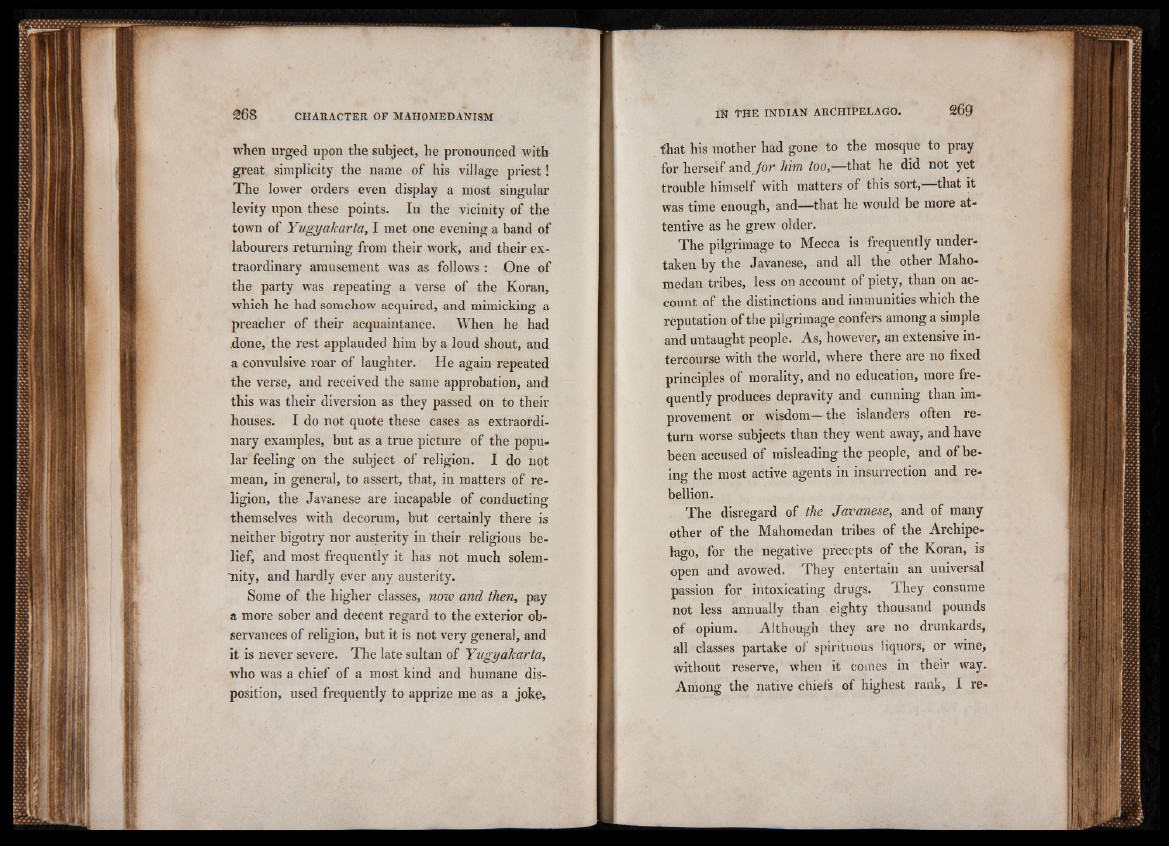
when urged upon the subject, he pronounced with
great simplicity the name of his village pi’iest!
The lower orders even display a most singular
levity upon these points. In the vicinity of the
town of Yugyakarta, I met one evening a band of
labourers returning from their work, and their extraordinary
amusement was as follows : One of
the party was repeating a verse of the Koran,
which he had somehow acquired, and mimicking a
preacher of their acquaintance. When he had
done, the rest applauded him by a loud shout, and
a convulsive roar of laughter. He again repeated
the verse, and received the same approbation, and
this was their diversion as they passed on to their
houses. I do not quote these cases as extraordinary
examples, but as a true picture of the popular
feeling on the subject of religion. I do not
mean, in general, to assert, that, in matters of religion,
the Javanese are incapable of conducting
themselves with decorum, but certainly there is
neither bigotry nor austerity in their religious belief,
and most frequently it has not much solemnity,
and hardly ever any austerity.
Some of the higher classes, now and then, pay
a more sober and decent regard to the exterior observances
of religion, but it is not very general, and
it is never severe. The late sultan of Yugyakarta,
who was a chief of a most kind and humane disposition,
used frequently to apprize me as a joke,
that his mother had gone to the mosque to pray
for herself and Jov him too,—that he did not yet
trouble himself with matters of this sort,—that it
was time enough, and—that he would be more attentive
as he grew older.
The pilgrimage to Mecca is frequently undertaken
by the Javanese, and all the other Maho-
medan tribes, less on account of piety, than on account
of the distinctions and immunities which the
reputation of the pilgrimage confers among a simple
and untaught people. As, however, an extensive intercourse
with the world, where there are no fixed
principles of morality, and no education, more frequently
produces depravity and cunning than improvement
or wisdom—the islanders often return
worse subjects than they went away, and have
been accused of misleading the people, and of be-
ins1 the most active agents in insurrection and re- O 0 bellion.
The disregard of the Javanese, and of many
other of the Mahomedan tribes of the Archipelago,
for the negative precepts of the Koran, is
open and avowed. They entertain an universal
passion for intoxicating drugs. They consume
not less annually than eighty thousand pounds
of opium. Although they are no drunkards,
all classes partake of spirituous liquors, or wine,
without reserve, when it comes in their way.
Among the native chiefs of highest rank, I re